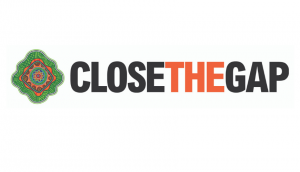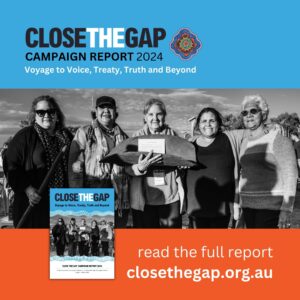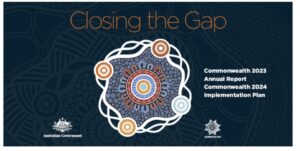In May 2022, when the Albanese Labor government was elected, the first commitment they made was to establish a constitutionally enshrined Aboriginal and Torres Strait Islander Voice to Parliament. Since then, every state and territory government has indicated their support for this national reform, which is to be decided by referendum later this year. If successful, it would be the first step in implementing the Uluru Statement from the Heart.
See link to Indigenous Voice Co-Design Final Report Media Release: Click here
Aboriginal and Torres Strait Islander peoples and their allies know the important role that the Voice can play in creating a holistic pathway to genuine systemic reform, and a new way of working with Aboriginal and Torres Strait Islander communities. It will do this by providing Parliament and government with independent advice, based on the wishes of Aboriginal and Torres Strait Islander peoples, that is ‘empowering, community led, inclusive, respectful, culturally informed and gender balanced, and include youth’.
The Voice will also work alongside existing organisations and traditional structures, which is why the key recommendations in this report also call for the full implementation of
- Uluru Statement for the Heart
- United Nations Declaration on the Rights of Indigenous Peoples
and call for the accelerated action and implementation of:
- National Agreement on Closing the Gap
- National Aboriginal and Torres Strait Islander Health Plan 2021–2031.
Each of these frameworks recognises the intersectional nature of disadvantage that Aboriginal and Torres Strait Islander people experience. Without the holistic focus that these frameworks call for, the ability of policy, programs, and services to appreciate and respond to the needs of Aboriginal and Torres Strait Islander peoples – who sit at the intersection of other disadvantaged identity markers – are obscured. This undermines Aboriginal and Torres Strait Islander peoples’ agency and, as a result, mitigates the efficacy of policies meant to support them.
This lack of genuine holistic reform is evident, and it is impeding the success of meeting the Closing the Gap targets. This failure manifests in Aboriginal and Torres Strait Islander peoples being over-represented in the justice system, having disproportionately higher suicide and child removal rates, lower life expectancy and poorer employment outcomes. It is, in measurable terms, seen in the lack of health equity and equality for Aboriginal and Torres Strait Islander peoples across the nation.
This is the ‘torment of our powerlessness’ that Aboriginal and Torres Strait Islander leaders spoke of in the Uluru Statement from the Heart. While the details of a Representative Voice to Parliament are yet to be outlined, this is what we do know:
- Aboriginal and Torres Strait Islander peoples’ lived experiences in this country manifest issues that are specific to them as former colonial subjects.
- The key to Aboriginal and Torres Strait Islander peoples’ social, cultural, political and economic advancement is the full realisation of their rights as self-determining peoples.
- The primary factor that stipulates how much Aboriginal and Torres Strait Islander peoples and communities can exercise their right to self-determination on a national scale is whether they have a voice, at the highest level of government, to represent them and to advocate for their priorities and aspirations.
As a nation, we find ourselves at a moment in history where we can create the transformative change that Aboriginal and Torres Strait Islander peoples and communities have been calling for. We have, right now, the opportunity to build a national framework that creates the type of large-scale structural reform that is necessary if we are to Close the Gap.
A constitutionally enshrined Voice cannot, and will not, be the only answer, but it would be a significant step in advancing the rights and aspirations of Aboriginal and Torres Strait Islander peoples. As Commissioner Oscar notes:
“There are, as always, a few voices rallying against progressive propositions. But the tussle between most, is not so much about where we are heading or what we are wanting the future state to be – most of us want less suffering and struggle, an end to discrimination, and guaranteed fairness and equality. The dissent is about what should be done in policy and law and institutional arrangements to form these conditions. It is about the road we construct to take us there, and the practical steps for how change should take effect”.
A nationally enshrined Voice in the Constitution is but one of those institutional arrangements to achieve those practical steps. Aboriginal and Torres Strait Islander peoples and the broader Australian public will have differing views and ideas on how to achieve the changes needed.
As such, it is imperative that in discussing what the ‘Yes’ vote might mean, we collectively drive the national conversation in an open, healthy dialogue.
We do not need to agree on everything, that is not necessary nor likely, but we must find common ground so we can move forward and deliver real and practical change.
March 2023
National Close the Gap Campaign – Co-Chairs
June Oscar AO – Aboriginal and Torres Strait Islander Social Justice Commissioner – Australian Human Rights Commission
Karl Briscoe – CEO – National Association of Aboriginal and Torres Strait Islander Health Workers and Practitioners




